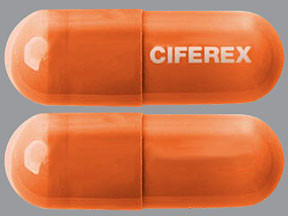VITAMIN D/FOLIC ACID - ORAL
PHONETIC PRONUNCIATION: (VYE-ta-min/FOE-lik AS-id)
COMMON BRAND NAME(S): Folixapure, Noxifol-D, OrthoDF
GENERIC NAME(S): cholecalciferol (vit D3)/folic acid
Uses
USES: This medication contains 2 ingredients: vitamin D and folic acid. Vitamin D is a fat-soluble vitamin that helps your body absorb calcium and phosphorus. Having the right amount of vitamin D, calcium, and phosphorus is important for building and keeping strong bones. Vitamin D is made by the body when skin is exposed to sunlight. Sunscreen, protective clothing, limited exposure to sunlight, dark skin, and age may prevent getting enough vitamin D from the sun. Folic acid is the man-made form of folate. Folate is a B vitamin naturally found in some foods. It is needed to form healthy cells, especially red blood cells. Low folate levels can lead to certain types of anemia. Conditions that can cause low folate levels include poor diet, pregnancy, alcoholism, liver disease, certain stomach/intestinal problems, kidney dialysis, among others. Women of childbearing age should get enough folic acid through their diet or supplements to prevent infant spinal cord birth defects.
How to use VITAMIN D/FOLIC ACID - ORAL
HOW TO USE: Take vitamin D/folic acid by mouth with or without food as directed by your doctor, usually once daily. The dosage is based on your medical condition and response to treatment. Certain medications (bile acid sequestrants such as cholestyramine/colestipol, mineral oil, orlistat) can decrease the absorption of vitamin D. Take your doses of these medications as far as possible from your doses of vitamin D/folic acid (at least 2 hours apart, longer if possible). Take this medication regularly to get the most benefit from it. To help you remember, take it at the same time each day. Tell your doctor if your condition lasts or gets worse.
Side Effects
Precautions
Interactions
Overdose
Images

- color
- orange
- shape
- oblong
- imprint
- Durachol
Reviews
Faq for VITAMIN D/FOLIC ACID - ORAL
Vitamin D is a fat-soluble vitamin that is necessary for the proper functioning of our body. It helps in the absorption of calcium and phosphorus, which are essential for strong and healthy bones.
The main source of vitamin D is sunlight. Our body produces vitamin D when the skin is exposed to sunlight. It is also found in certain food sources such as fatty fish (salmon, mackerel, and sardines), fortified dairy products, and egg yolks.
The recommended daily intake of vitamin D varies depending on age and gender. Generally, adults require 600-800 international units (IU) of vitamin D per day, while infants and children may need lesser amounts. However, it is best to consult with a healthcare professional for personalized recommendations.
Vitamin D is crucial for bone health as it helps in the absorption of calcium and phosphorus. It also plays a role in the immune system, muscle function, and cell growth. Some studies suggest that adequate vitamin D levels may reduce the risk of certain diseases like osteoporosis, cardiovascular diseases, and certain types of cancer.
Folic acid, also known as folate or vitamin B9, is a water-soluble vitamin that is essential for cell growth and development. It is especially important during pregnancy as it helps in the formation of the baby's neural tube and reduces the risk of certain birth defects.
Folic acid is naturally found in many food sources, including leafy green vegetables (spinach, broccoli, kale), legumes (beans, lentils), citrus fruits, and fortified grains (cereals and bread). It is also available in the form of supplements.
The daily recommended intake of folic acid varies depending on age and gender. For most adults, the recommended daily intake is 400 micrograms (mcg). Pregnant women require a higher dosage, usually 600-800 mcg. Again, it is best to consult with a healthcare professional for personalized recommendations.
Folic acid is crucial for the production of red blood cells and DNA synthesis. It plays a vital role in preventing certain types of anemia and is especially important during pregnancy for the proper development of the baby. Adequate folic acid intake is also associated with a reduced risk of heart disease and certain mental health disorders.
Disclaimer
IMPORTANT: HOW TO USE THIS INFORMATION: This is a summary and does NOT have all possible information about this product. This information does not assure that this product is safe, effective, or appropriate for you. This information is not individual medical advice and does not substitute for the advice of your health care professional. Always ask your health care professional for complete information about this product and your specific health needs.

No Reviews Yet